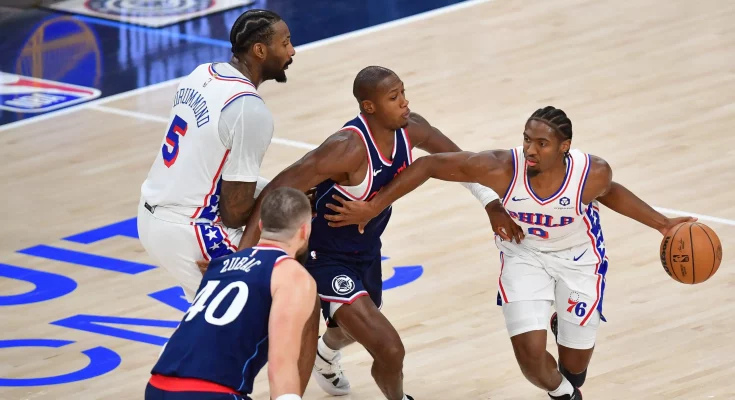**Ex-Miami Heat Employee Charged for Selling Millions of Dollars’ Worth of Stolen Memorabilia from Team Facility**
In a shocking turn of events, a former Miami Heat employee has been charged with stealing and selling millions of dollars’ worth of team memorabilia, including championship rings, game-worn jerseys, and other high-value items. The case has sent ripples through the sports memorabilia market, raising questions about security protocols within professional sports organizations and the lengths individuals may go to exploit their access for personal gain.
### **The Allegations and the Accused**
According to court documents, the former employee, whose name has not been disclosed pending further legal proceedings, worked in a role that granted them access to the Heat’s storage facilities where valuable team artifacts were kept. Over a period of several years, the individual allegedly removed items such as:
– **NBA Championship rings** from the Heat’s 2006, 2012, and 2013 title runs.
– **Game-worn jerseys** belonging to franchise legends like Dwyane Wade, LeBron James, and Chris Bosh.
– **Signed basketballs, sneakers, and other collectibles** with significant market value.
The stolen items were then reportedly sold through private collectors, auction houses, and online marketplaces, netting the suspect millions of dollars before the scheme was uncovered.
### **How the Scheme Unraveled**
The thefts went undetected for years, in part because the memorabilia was stored in a secure facility that was rarely audited. However, suspicions arose when rare Heat items began appearing in auctions without any official team authorization. Collectors and memorabilia experts noticed inconsistencies, such as missing authentication paperwork, which raised red flags.
The Miami Heat organization was alerted after a high-profile auction house attempted to verify the provenance of a 2013 LeBron James Finals jersey. When the team confirmed they had no record of the item being released for sale, an internal investigation was launched. Security logs, employee access records, and transaction histories were reviewed, eventually leading investigators to the former staff member.
### **Legal Consequences and Industry Reactions**
The accused now faces multiple felony charges, including grand theft, fraud, and trafficking in stolen property. If convicted, they could face significant prison time, given the high value of the stolen goods. Additionally, the case has prompted discussions about how professional sports teams safeguard their memorabilia.
Memorabilia experts have noted that this incident is not isolated—similar thefts have occurred in other leagues, including the NFL and MLB, where employees with insider access have exploited their positions. The growing market for sports collectibles, fueled by skyrocketing prices at auctions, has made such crimes increasingly lucrative.
### **The Value of Sports Memorabilia**
The memorabilia market has exploded in recent years, with rare items fetching astronomical sums. For example:
– A Michael Jordan rookie jersey sold for **$1.38 million** in 2022.
– Kobe Bryant’s 2000 championship ring was auctioned for over **$900,000**.
– LeBron James’ 2013 Finals jersey could easily command **seven figures** if authenticated.
Given these valuations, the theft of multiple championship rings and game-worn jerseys represents a multi-million-dollar loss for the Heat. While some items have been recovered, others remain missing, potentially circulating in the underground memorabilia market.
### **Security Gaps in Professional Sports**
This case highlights vulnerabilities in how teams manage their archives. Unlike cash or digital assets, physical memorabilia is often stored without stringent inventory checks, making theft easier to conceal. Some experts suggest that teams should implement:
– **Regular audits** of high-value items.
– **Restricted access logs** with biometric verification.
– **Third-party authentication** for any items being sold or loaned.
The Miami Heat have since tightened security measures, but the incident serves as a cautionary tale for other franchises.
### **The Impact on Collectors and the Memorabilia Market**
For collectors, the case underscores the importance of due diligence when purchasing high-end sports memorabilia. Items without proper documentation or provenance can be confiscated if later identified as stolen, leaving buyers at a loss. Reputable auction houses now require more stringent verification processes to avoid legal complications.
### **Conclusion**
The arrest of the ex-Miami Heat employee marks a significant moment in the intersection of sports, collectibles, and crime. It exposes the risks teams face in preserving their historical artifacts and the lengths to which individuals may go to profit from insider access. As the memorabilia market continues to grow, so too must the safeguards against theft and fraud—ensuring that the legacies of teams and players remain protected for future generations.
The case remains ongoing, with authorities working to recover all stolen items and hold the responsible parties accountable. For the Miami Heat, the incident is a stark reminder that even the most trusted personnel can betray that trust for personal gain. Meanwhile, the sports memorabilia industry will likely see increased scrutiny, as leagues and collectors alike seek to prevent similar schemes in the future.



